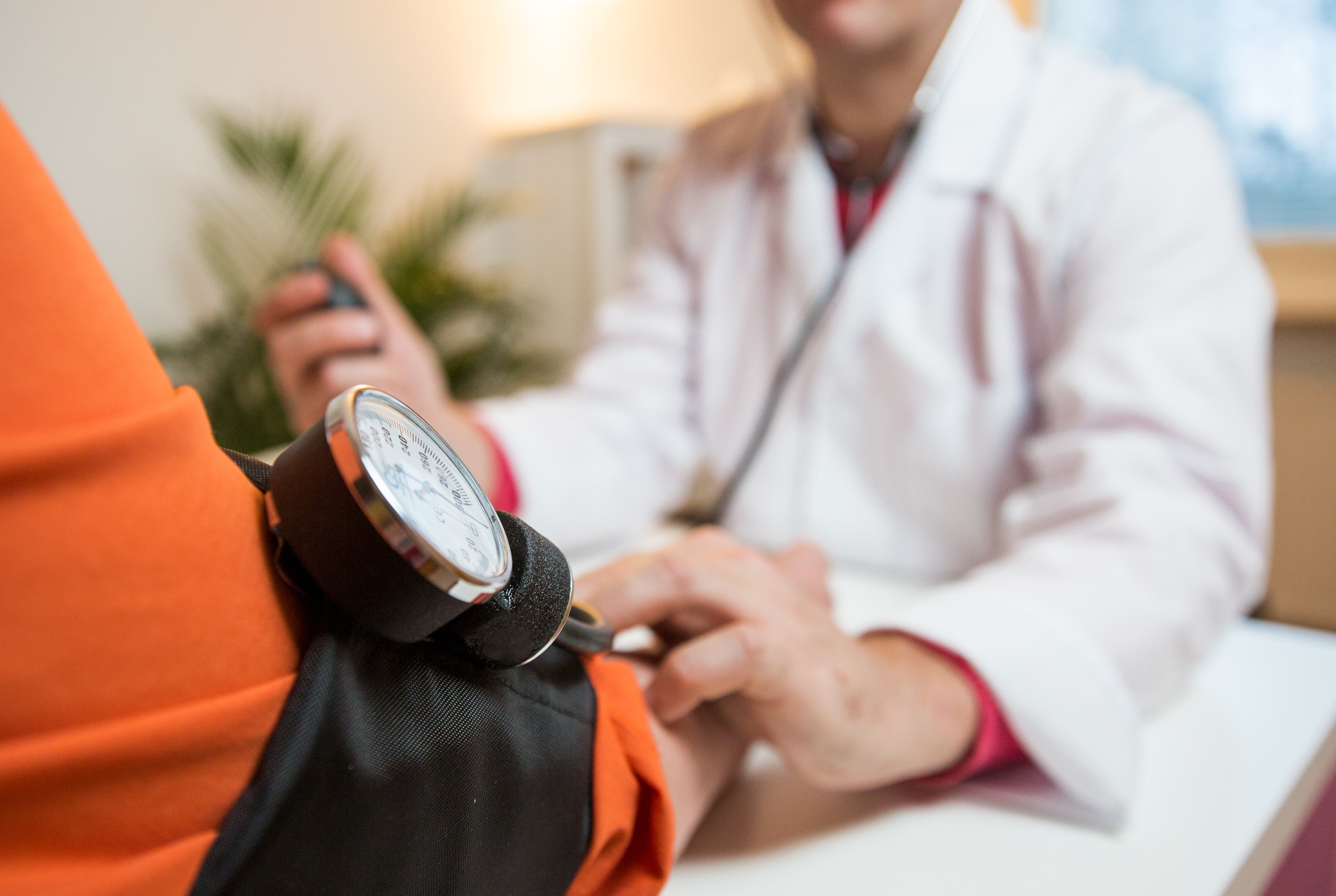
The squeeze of the cuff. The cold stethoscope in the crook of your arm.
You probably know what it's like to have your blood pressure measured, but you may not be aware of why a blood pressure test is so important.
When a doctor or nurse checks your blood pressure, they're measuring the amount of pressure in your blood vessels (called systolic), as well as the amount of pressure in your heart when it rests between beats (called diastolic). Both numbers say a lot about your heart health.
In 2017, the American College of Cardiology and the American Heart Association released updated blood pressure guidelines in an effort to help people start taking steps to lower their blood pressure earlier. Under the new guidelines, about 14% more people were diagnosed with high blood pressure—bringing the percentage up to nearly half of the U.S. adult population.
The new guidelines lower the threshold for a high blood pressure diagnosis:
The threshold for a high blood pressure diagnosis is 130/80.
Luckily, your health plan can help—a blood pressure screening is a preventive care service, which means that it's 100% covered. To book a screening today, use the Find a Doctor tool.
1. It's often called the "silent killer." Some people experience headaches, dizziness, blurred vision and even nosebleeds when their blood pressure is high. However, most of the time, there are no obvious symptoms, and people don't know they have high blood pressure until they get it checked.
2. 46% of American adults have high blood pressure. It's a good idea to check your blood pressure between doctor's appointments, such as at a blood pressure reading machine at a pharmacy. And even if you're already being treated for high blood pressure, it's important to check it often to see if your medication is working, and to alert you to any complications.
3. High blood pressure raises your risk for very serious conditions. From heart attack to stroke to kidney failure, high blood pressure was a primary or contributing cause of death for 494,873 Americans in 2018, according to the CDC.
There's a lot you can do to lower your risk of developing high blood pressure.
Here are a few heart-healthy ways you can make an impact:
4. A little weight loss can make a big difference. Dropping as few as 5 to 10 pounds could help lower your blood pressure, according to the American Heart Association. Consider using a weight-loss journal or downloading an app like MyFitnessPal to track your diet and exercise. Or, join a gym through the Active&Fit Direct™ Program, which lets you choose from over 11,000 fitness centers nationwide for only $25 a month (plus a $25 enrollment fee). Need more accountability? Check out these deals on weight management programs.
5. Take a walk, every day. Walking just 15 to 30 minutes every day can bring your blood pressure down or help prevent high blood pressure in the first place.
6. Dietary changes can help. Several studies have shown changing your diet can help reduce blood pressure. Reduce the amount of sodium in your meals, and start making fruits and vegetables a bigger part of your daily diet. Also, swapping less healthful food choices for better alternatives can help. Favor whole grains like quinoa or brown rice over processed grains, low-fat or nonfat dairy products over full-fat dairy, and nuts, fish and poultry as your primary protein sources over red meat.
7. Reducing stress helps, too. While scientists continue to tease out the connection between stress and high blood pressure, we do know that stress can lead to unhealthy habits like eating junk food and drinking too much alcohol or coffee. When you are feeling tense, consider reaching for the yoga mat, take 5 minutes to meditate or try other stress-reducing activities.
8. Talk to your doctor about supplements. Some people take supplements like coenzyme Q10, garlic, fish oil and L-arginine to reduce blood pressure. However, more research is needed to determine if natural supplements really do help, and there's a possibility they may interact with medications you're taking. Plus, supplements aren't usually covered under your health plan unless they're prescribed, so it's important to talk to your doctor about supplements as well as your coverage.
The next time you have your blood pressure checked, pay attention to your numbers. If they indicate your blood pressure is on the high side, consider it an important warning. Talk to your doctor about what you can do reduce your blood pressure and improve your heart health. Even if you're already treating hypertension with medication, positive lifestyle changes can make a difference.
